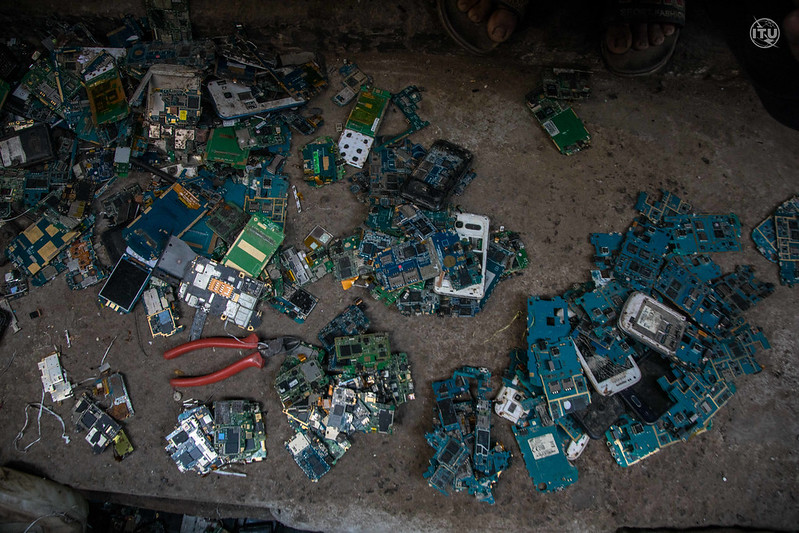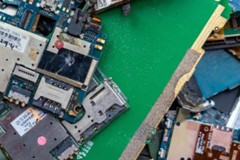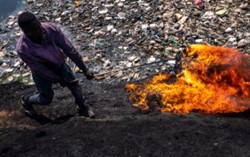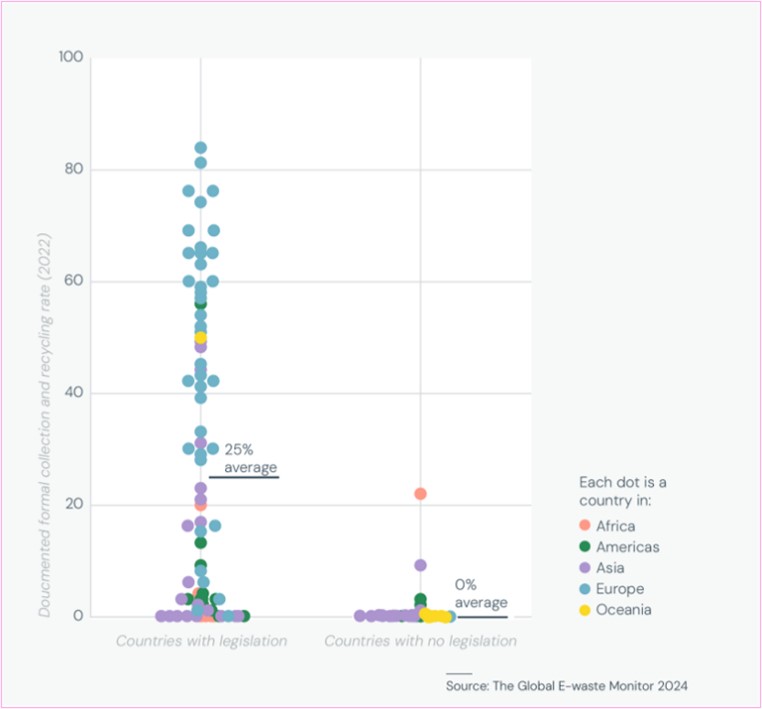 Objective
Objective
In line with ITU's Programme of Work (2023-2026) on Greening Digital Transformation and Creating a Circular Economy for Electronics, this project aims to create sound recommendations for a regulatory framework for the governance of e-waste management under extended producer responsibility (EPR) in Thailand and Mongolia.
- Building on the current e-waste regulatory status and past ITU project experiences in Thailand, this project will enhance ongoing regulatory efforts with technical assistance. The proposal will develop a sound legal framework, administrative arrangement, and financing mechanism to implement EPR principles in national e-waste management regulation.
- Based on the current e-waste management system in Mongolia, the project will develop a report detailing recommendations for a proposed legal framework to manage e-waste, incorporating EPR.
This project is supported by the Australian Department of Infrastructure, Transport, Regional Development, Communications and the Arts (DITRDCA).
 Photo Credit: Muntaka Chasant for Fondation Carmignac
|  Photo Credit: Muntaka Chasant for Fondation Carmignac
|
Goals:
The project will accelerate the development of e-waste management and regulation in the Asia-Pacific region. It is expected that:
- Thailand and Mongolia will have the capacity to better regulate the management of e-waste.
- Public and private sector stakeholders will be well-coordinated and will have aligned on a common vision for the suitable e-waste management legal framework, requisite administrative procedures, roles and responsibilities to efficiently operationalise such a legal framework, and the approach to finance e-waste management.
- Thailand and Mongolia will have the necessary policy tools and principles to implement sustainably financed e-waste management regulation where the private sector plays a significant role.
It is anticipated that this project will enhance the retention of valuable materials, safeguarding the health and environmental protection and will facilitate a circular economy for the electricals and electronics sectors in Thailand and Mongolia.

Countries with legislation on average achieve a collection and recycling rate of 25%. For the majority of those with no legislation, this rate is close to 0%.
|
Activities:The project is planned to run for two years between January 2024 and March 2026.
Thailand:
A technical proposal will be developed for Thailand with recommendations to support its policy-making on managing e-waste and implementing the principle of EPR. The report will be developed through:
- Review existing legal framework for e-waste management in Thailand.
- Analyze existing procedures in importation, business registration, licensing, and customs declarations.
- Document possible administrative procedures for EPR on e-waste management.
- Study potential financing mechanisms for e-waste management under EPR.
- Consult with public and private sector and industry engagement for feedback on regulatory coordination, economic viability, and attribution of key roles and responsibilities.
Mongolia:
A technical proposal will be developed for Mongolia with recommendations detailing a roadmap for establishing a regulatory framework for e-waste management. The proposal will be developed through:
- Review existing legal framework for e-waste management.
- Focus on solid waste, environmental laws, ICT laws, hazardous waste law.
- Implement consultation process for stakeholder input.
- Define key definitions, roles, and responsibilities.